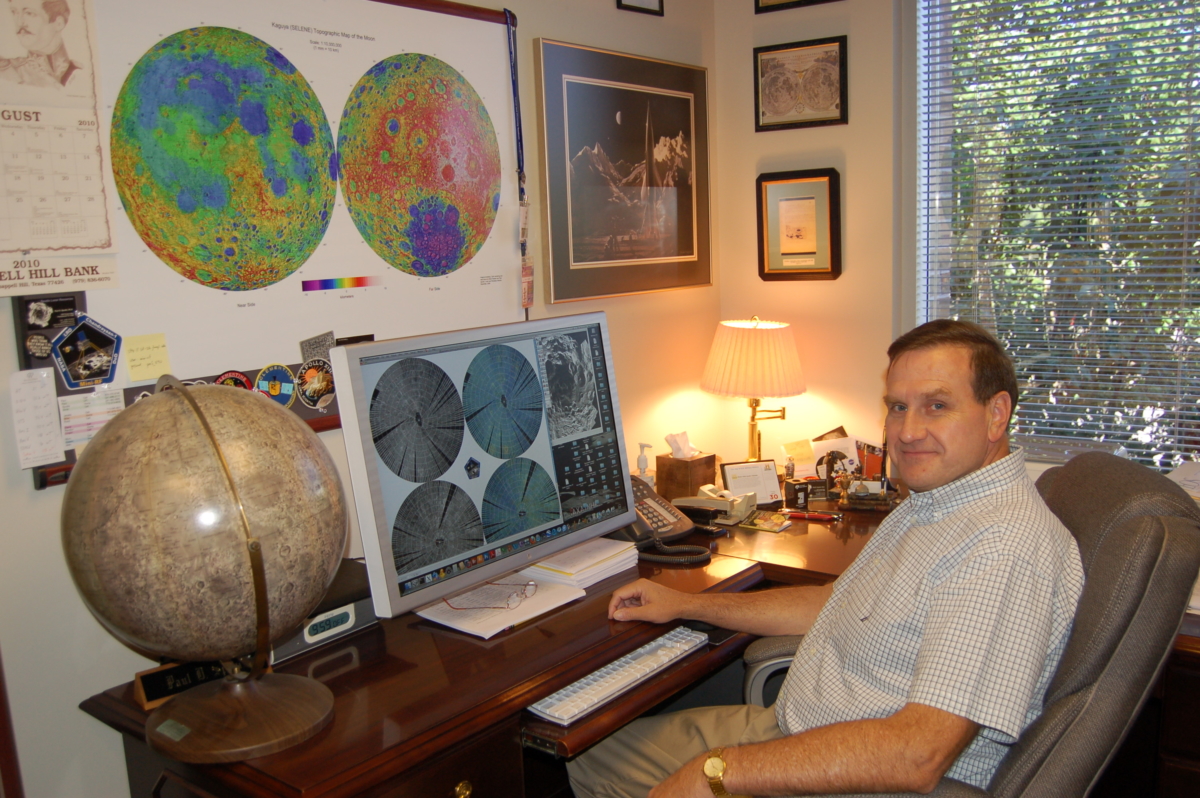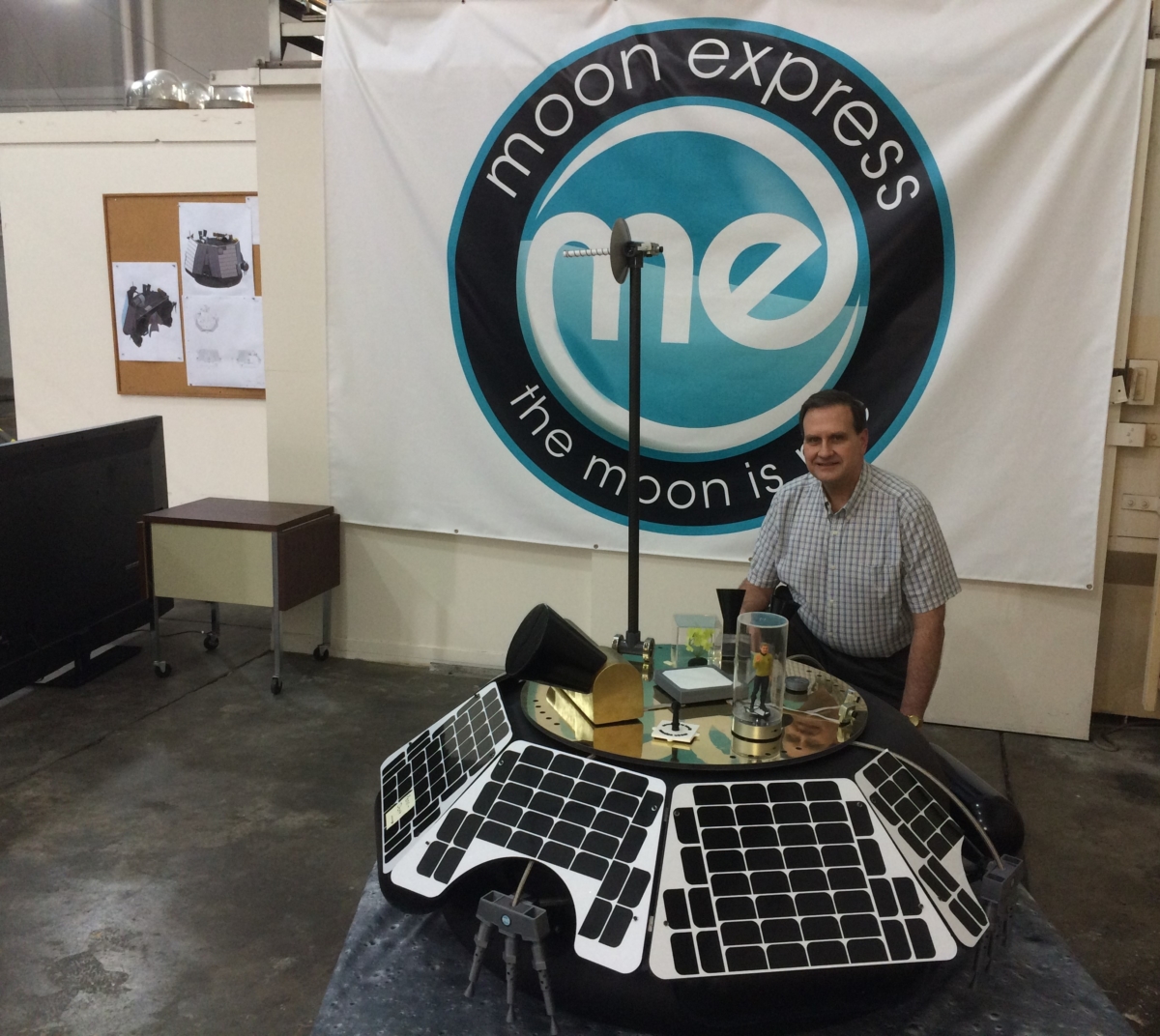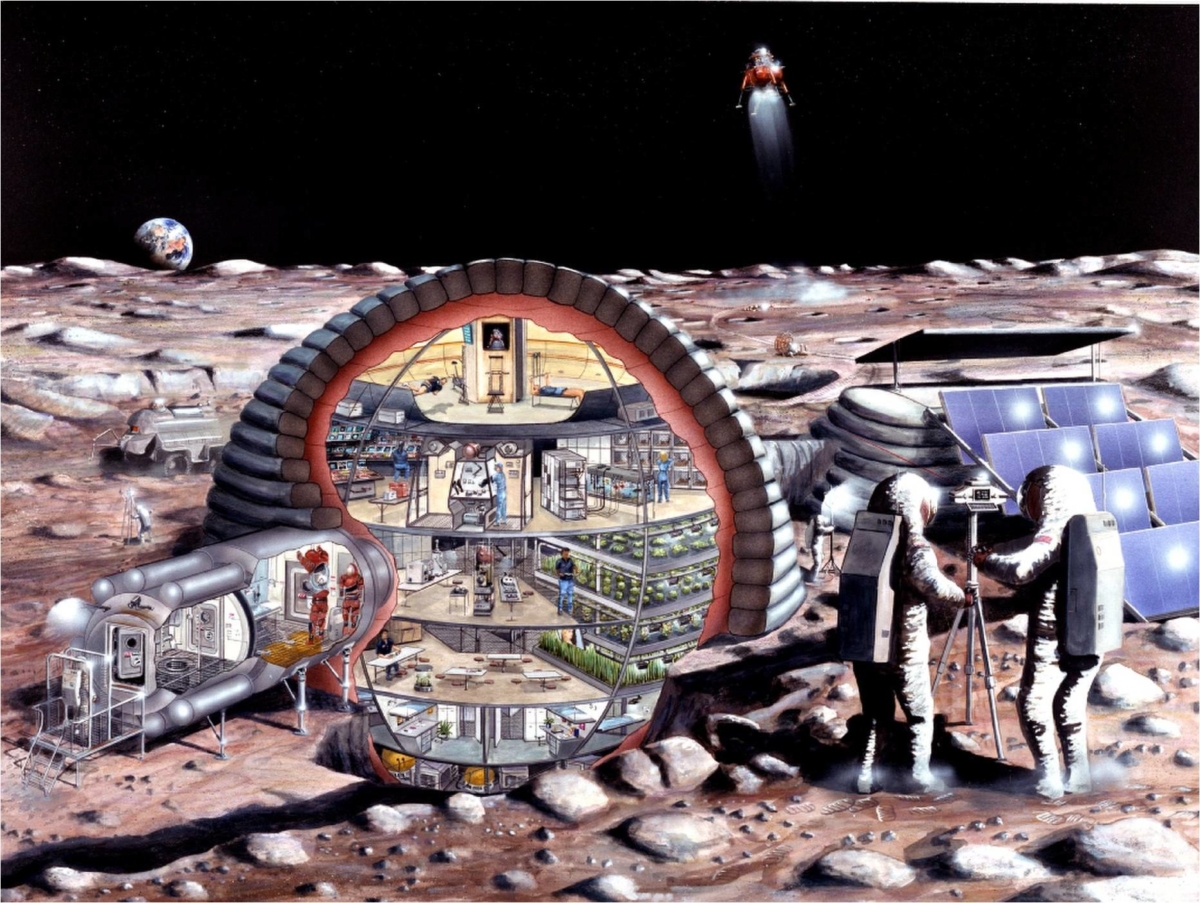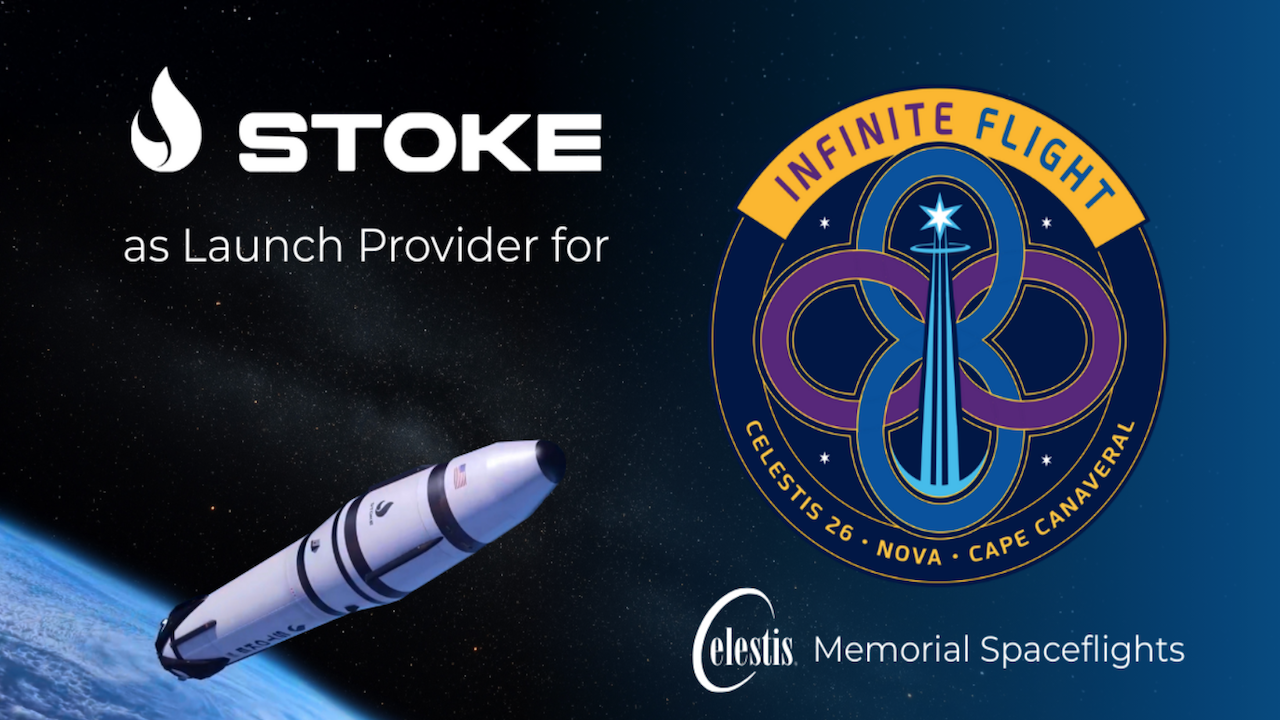With the Passing of Paul Spudis, We Lost One of the Biggest Moon-Exploration Experts

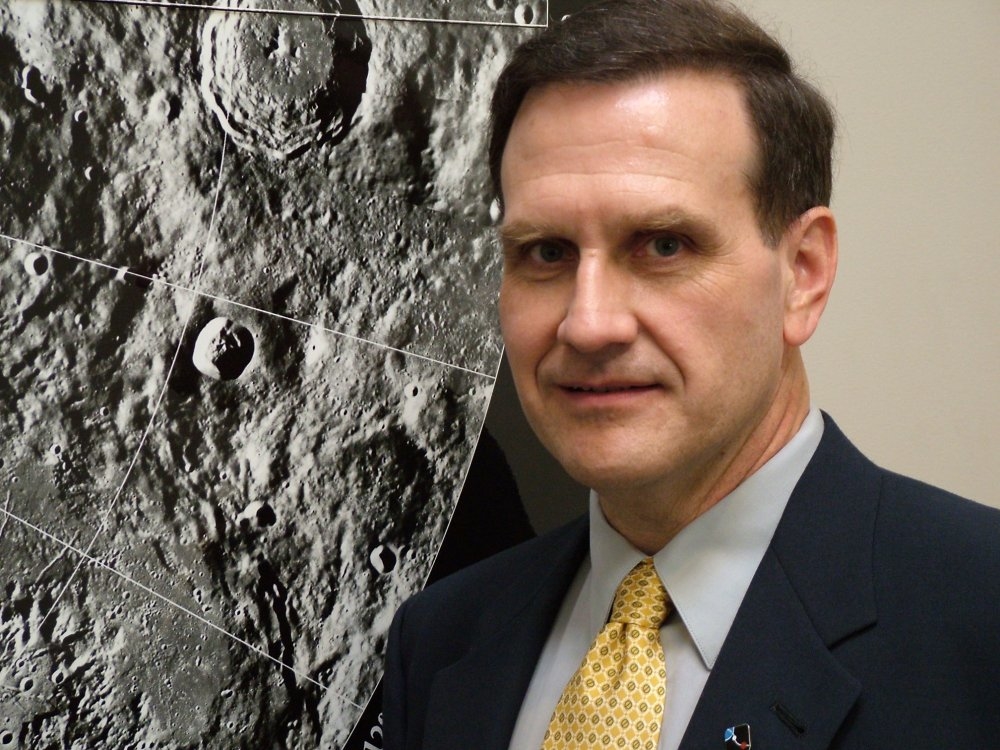
It was a personal shock to me yesterday (Aug. 29) to learn of the passing of Paul Spudis, a leading moon expert, a great friend over the decades and an in-your-face proponent of the moon over Mars as the next deep-space astronaut destination.
Word first came to me via a posting by Samuel Lawrence of NASA's Johnson Space Center in Houston, who chairs the Lunar Exploration Analysis Group:
"Today, we lost a giant of our field. It is my sad duty to report that Dr. Paul Spudis passed away this morning due to complications from lung cancer," Lawrence wrote.
"Few individuals have been as articulate, passionate or resolute in their advocacy of lunar exploration and human spaceflight as Paul Spudis," Lawrence added. "Paul articulated a clear, attainable vision regarding the immense value of going to the moon, establishing a permanent human presence on the surface and using the resources now known to be abundant on the surface to provide the capabilities required to let us go anywhere, and do anything, we want to do in the solar system.
"For four generations, Paul was a truly fearless leader, unafraid to speak truth to power, vigorously pointing out immense value of a strong presence on the moon's surface for any future United States efforts beyond low Earth orbit," Lawrence noted. "When the history of the 21st century is written, it is likely that those who ultimately succeed in moving humanity beyond low Earth orbit will have done so by following the clear path he laid out.
"We have lost an accomplished scientist, a visionary leader and a friend," he added. "While many tributes are being planned, I think that everyone would agree that the best possible tribute to his memory will be a continuing, vibrant United States presence on the lunar surface. It is now, sadly, up to the rest of us to finish the job he started."
Outpouring of sadness
The outpouring of sadness filled my inbox. Here are a few comments:
Breaking space news, the latest updates on rocket launches, skywatching events and more!
"As I watch the moon rising right now over the Colorado mountains, I can't help but recall the words from J.R.R. Tolkien: 'Moonlight drowns out all but the brightest stars,'" wrote Angel Abbud-Madrid, director of the Center for Space Resources at the Colorado School of Mines. "Paul: We clearly see you shining bright next to your old friend, the moon."
"This is indeed the most devastating and unexpected news," responded Ian Crawford, a professor of planetary science and astrobiology sat Birkbeck nUniversity of London.
"It goes without saying that Paul was among the strongest advocates for a human return to the moon, and lunar science will miss him terribly," Crawford wrote. "He had a significant influence on me personally, especially through his book 'The Once and Future Moon.' I would like to offer my heartfelt condolences to Paul's friends, family and colleagues. As others have noted, the best way to honor his memory will be to get humanity back to the moon."
"Oh no! The lunar community has lost a champion, but of course that is an understatement beyond words," wrote Carle Pieters, a planetary scientist at Brown University.
"Paul's continued and unswerving commitment to exploration of the moon, coupled with his fathomless store of history and knowledge about the moon, is simply irreplaceable," Pieters said. "His sharp mind and dry wit will be greatly and constantly missed as we move forward!"
History-making background
Spudis, who was born in 1952, was deputy leader of the science team for the joint NASA/Department of Defense Clementine mission to the moon in 1994; principal investigator for the Mini-SAR imaging radar experiment on India's Chandrayaan-1 mission, which studied the moon from orbit in 2008 and 2009; and a team member of the Mini-RF imaging radar instrument on NASA's Lunar Reconnaissance Orbiter mission, which has been studying the moon since 2009.
Spudis authored or co-authored over 115 scientific papers and seven books, including "The Once and Future Moon" (Smithsonian, 1996), a book for the general public; "The Clementine Atlas of the Moon" (Cambridge University Press, 2004); and "The Value of the Moon: How to Explore, Live, and Prosper in Space Using the Moon's Resources" (Smithsonian, 2016). [Is the Moon Our Ticket to the Solar System? Q&A with Author Paul D. Spudis]
Spudis was a major lunar scientist based at the Lunar and Planetary Institute, in Houston. To learn more about his life and work, go to spudislunarresources.com.
Leonard David is author of "Mars: Our Future on the Red Planet," published by National Geographic. The book is a companion to the National Geographic Channel series "Mars." A longtime writer for Space.com, David has been reporting on the space industry for more than five decades. Follow us @Spacedotcom, Facebook or Google+. This version of the story published on Space.com.

Leonard David is an award-winning space journalist who has been reporting on space activities for more than 50 years. Currently writing as Space.com's Space Insider Columnist among his other projects, Leonard has authored numerous books on space exploration, Mars missions and more, with his latest being "Moon Rush: The New Space Race" published in 2019 by National Geographic. He also wrote "Mars: Our Future on the Red Planet" released in 2016 by National Geographic. Leonard has served as a correspondent for SpaceNews, Scientific American and Aerospace America for the AIAA. He has received many awards, including the first Ordway Award for Sustained Excellence in Spaceflight History in 2015 at the AAS Wernher von Braun Memorial Symposium. You can find out Leonard's latest project at his website and on Twitter.
